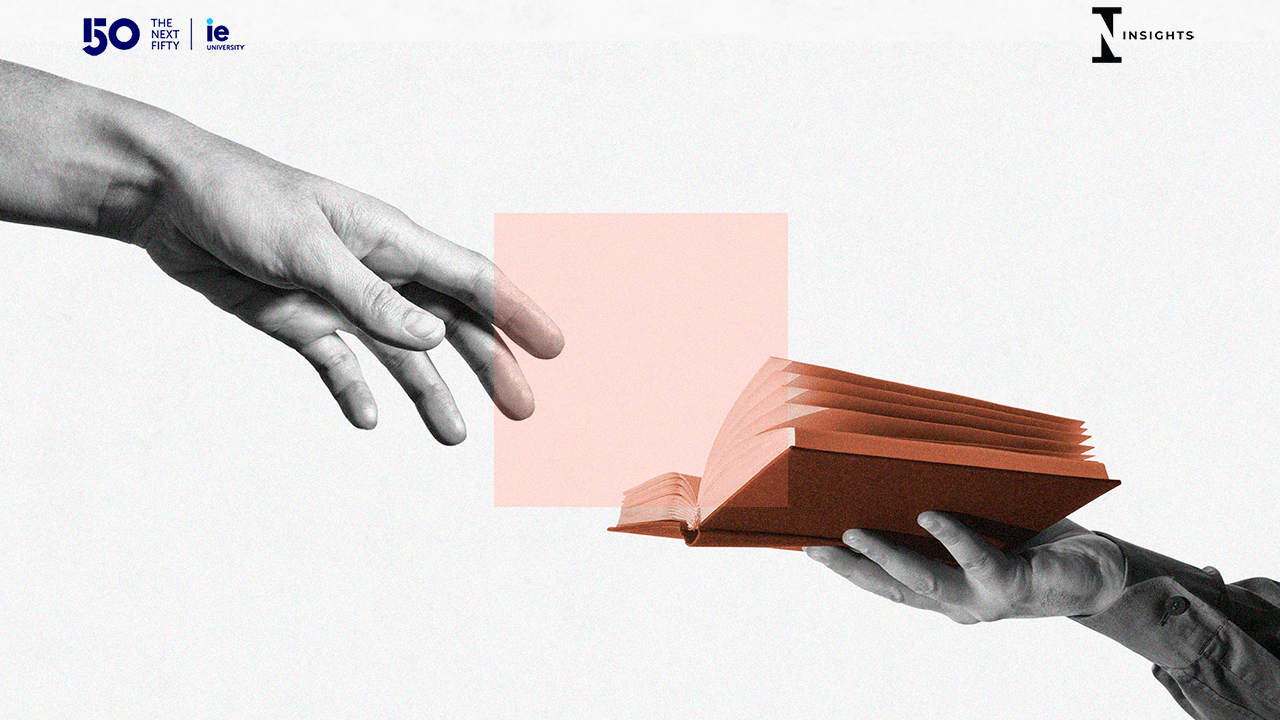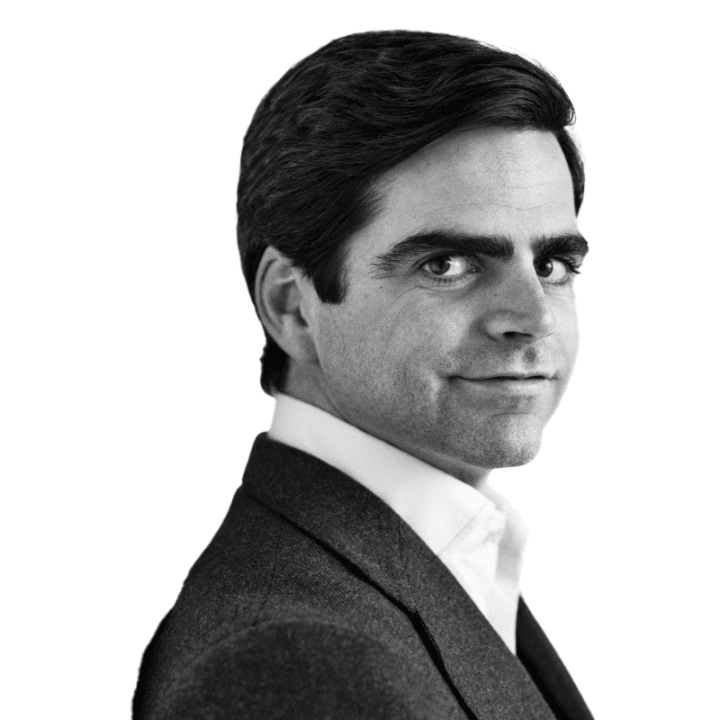Link copied
IE insights - IDEAS TO SHAPE THE FUTURE - Society

Brave New World
A fictional take on the role of humanities in the future.
The book that rested on his chest slid to the floor and violently hit the mat. The blow woke him with a start. He opened one slightly bleary eye and was suddenly invaded by a feeling of resentment, of subtle restlessness.
The crackle from the fireplace, of half-consumed firewood, soon soothed him. He managed to get up out of his chair, slowly, that pain in his hip forever limiting his movement. He opened his mouth in a full yawn, scratching the double chin that the years had drawn on his face, now aged and languishing. He looked around trying to orient himself from the deep lethargy that clung to him; those naps always kidnapped him.
His dazed look drew a glossy library, where he used to spend hours submerged between the pages of books, subjugated by the smell of wood and resin. “I have always imagined that Paradise will be a kind of library,” he laughed to himself, remembering Borges’ quote, as if he hadn’t woken up from a nap in this life but in the other. He looked down at the floor and saw the culprit of his abrupt awakening, an old copy, almost a hundred and fifty years old now, by Aldous Huxley. He adored those first editions, and when it was published way back in 1931, Brave New World was quite a revolution. Although he wasn’t born until fifty years after that milestone, literature was eternal, making him feel optimistic, humbly victorious.
He picked the book up from the floor and inspected the worn cover while meditating: society was safe from the Alpha, Beta, Gamma, Delta and Epsilon, those demonic breeds masterfully described by Huxley. Then he questioned himself: was it possible that today’s society had not yet eradicated wars or poverty? That we still struggled not to harm the environment? That we continue to be vulnerable to disease, far from the utopia of immortality? He had come to accept the imperfections of coexistence, that education was not the backbone of current societies, that happiness (oh, such a capricious yet comforting concept) did not shelter each individual and each community with its mantle… And, even so, even knowing that the world was far from those ideals, he felt proud because we had not fallen into the devilish temptation…
– “Do you need something? A coffee, perhaps?” – the metallic voice of his Artificial Friend interrupted him. Helpful, submissive.
“I need you to shut up. Don’t bother me.” His response was dry and dominant.
He picked up the glass of wine that he had set, before his nap, on the modern edition of Goethe’s Faust. His daughter had given him the book for Christmas and on the cover was the black silhouette of Mephistopheles on an indigo blue background. Yes, our society avoided a pact with the devil, he thought, and although technological advances were a never-ending source of temptations, we knew how to bend them to our will, to recognize the infinite risks they present. These days, technologies, digital or biological, were at our service, not the other way around.
Also, he smiled to himself, we’ve avoided succumbing to the cosmetic and self-imposed happiness with which we were invited to taste the apple, that neo-inquisition of “correctness” that would have turned us into servants, into castes of nothing, as in the book of Huxley. Rather, we dedicate ourselves to more humble, more respectful deeds, such as the care of seeing, of understanding, each individual, of delving into their singularities, their nuances. We are now far from the pestilence of those who sought to cancel behaviors that were not perversely stereotyped. Even so, one had to be alert, he said to himself, remembering Camus: “stupidity has a knack for getting its way”.
If fifty years ago he had had to guess at the current world, he would never have foreseen the speed of change (and back then, there were plenty of visionaries). It is thanks to literature, among other arts, that we have managed to preserve our memory, feed our imagination, and promote common sense, without which we would never had been able to guard against that threat to the essence of human nature.
Our society was imperfect, he smiled proudly.
© IE Insights.
